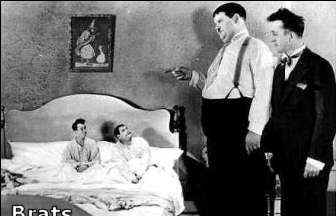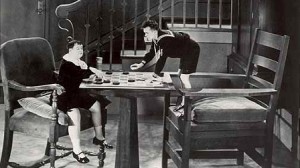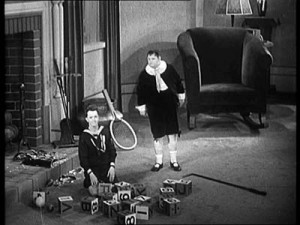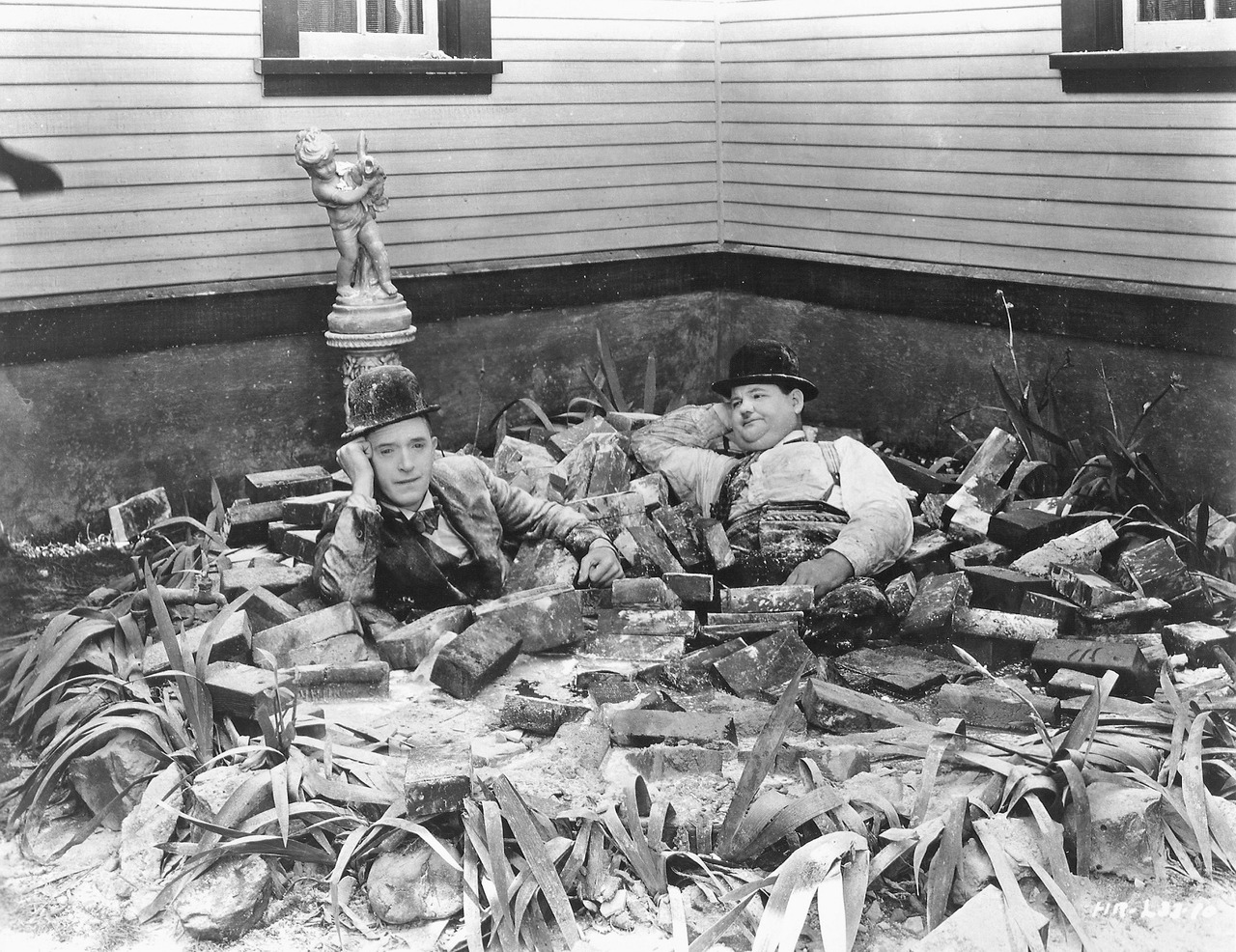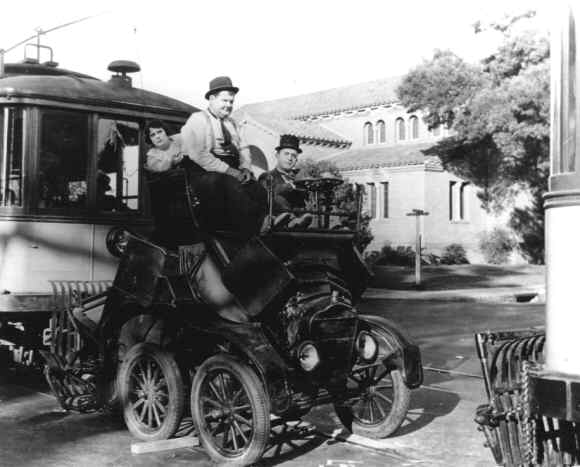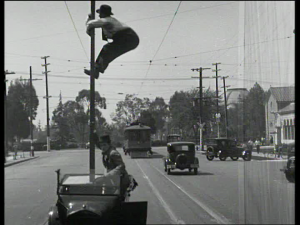From Monthly Film Bulletin, September 1975. — J.R.
Brats
U.S.A., 1930
Director : James Parrott
Cert–U. dist–Kingston. p.c/p–Hal Roach. For MGM. story–Leo
McCarey. dial–H. M. Walker. ph–George Stevens. ed–Richard Currier.
l.p–Stan Laurel (Himself/His Son), Oliver Hardy (Himself/His Son).
732 ft. 20 mins. (16 mm.).
While Laurel and Hardy try to play checkers, they are repeatedly interrupted by the fights and antics of their two sons, miniature replicas of themselves; eventually they send them up to bed. After putting on their pyjamas, the kids continue to wreak havoc: as Hardy Jnr. looks under the bed for a mouse, it crawls on to his bottom, and Laurel Jnr. fires at it with a toy gun; Hardy Jnr. howls in pain, and Laurel Jnr. fills the bathtub to offer him relief, leaving both taps on. They spar with boxing gloves before their fathers appear once more, and Hardy is persuaded to sing them a lullaby; when one of the kids asks for a glass of water and Hardy opens the bathroom door, the room is flooded.
A clever use of double sets — each room scaled separately to match the respective sizes of fathers and sons — and a baby Hardy without a moustache aren’t really enough to make this more than a minor Laurel and Hardy effort, although there are a few compensations along the way, most notably Laurel’s adage that “You can lead a horse to water but you can’t make a pencil lead”, and Hardy’s lullaby, which quickly gravitates into a scat-yodeling exercise. Some critics have noted that this short reveals how much the behavior of its comedians is like that of children; equally evident — in the gentleness of Stan and the irascibility of Oliver in the treatment of their offspring-doubles and the quarrels that ensue — is how closely they often resemble a husband and wife. The print under review, alas, is much too mottled and faded to allow for an easy appreciation of such oddities.
***
Hog Wild
U.S.A., 1930
Director: James Parrott
Cert–U. dist–Kingston. p.c/p–Hal Roach. For MGM. story–Leo
McCarey. ph–George Stevens. ed–Richard Currier. sd–Elmer Raguse.
l.p–Stan Laurel (Himself), Oliver Hardy (Himself), Fay Holderness (Mrs.
Hardy), Frank Ellis (Streetcar Conductor). 684 ft. 19 mins. (16 mm.).
So absent-minded that he argues with his wife about his ability to find his hat, which he happens to be wearing, Hardy is next dispatched by his spouse to put up a radio antenna. Laurel arrives in his car to assist and a string of disasters ensues: Laurel honks his horn and Hardy slides down the ladder, burning the seat of his pants when the car backfires; windows are smashed; Hardy frequently falls into a pond (and once into the fireplace), eventually taking Laurel and the pulverized chimney with him. The car starts moving when Hardy is standing on the ladder perched on the back seat, and both men speed through heavy traffic in helpless terror; the car is halted by a streetcar and subsequently smashed between two vehicles before a flattened version of it hobbles away. Meanwhile Mrs. Hardy has appeared in tears to report that her radio has been taken away.
Manny Farber has singled out Hog Wild as a prime example of “termite art” exhibiting “termite behavior” in which the creators have no “object in mind other than eating away the immediate boundaries of [their] art, and turning these boundaries into conditions of the next achievement”. Surely among the strong points of this painfully funny comedy are the slow, leaden pauses between gags, which allow Hardy’s anger ample room in which to seethe, and the naturalistic crawl of events before the mad finale, which makes each pratfall register like another dull thud in a conventionally monotonous afternoon. Unlike
The Music Box, where every note of agony in the featured chore — moving a piano up an endless row of steps and into a house — is performed, as it were, on the same basic physical and narrative keyboard, Hog Wild plays true to the title by taking angular swerves in its narrative as well as its settings, staggering from one event to the next in a sort of dull-witted stupor that perfectly matches the helpless demeanor of its two leads.

